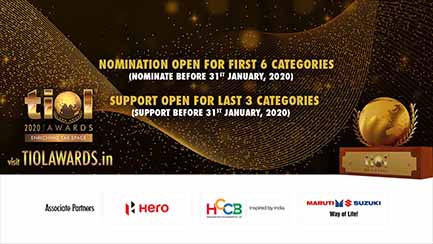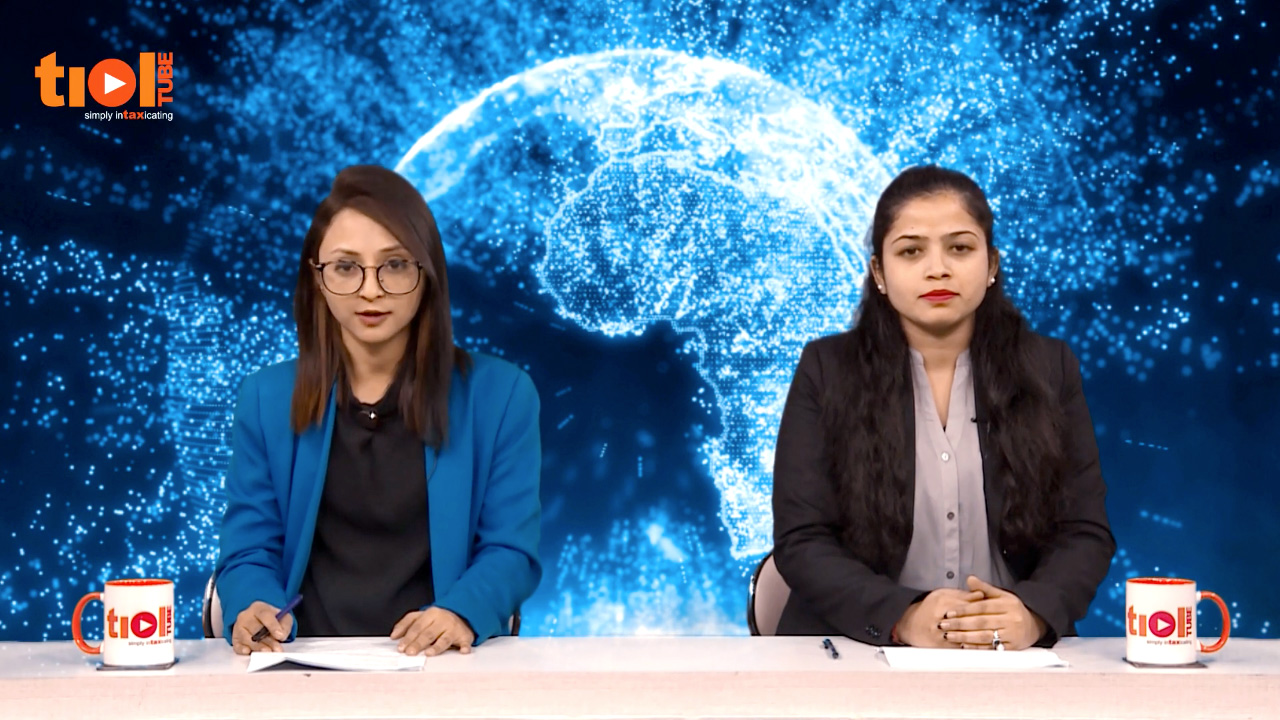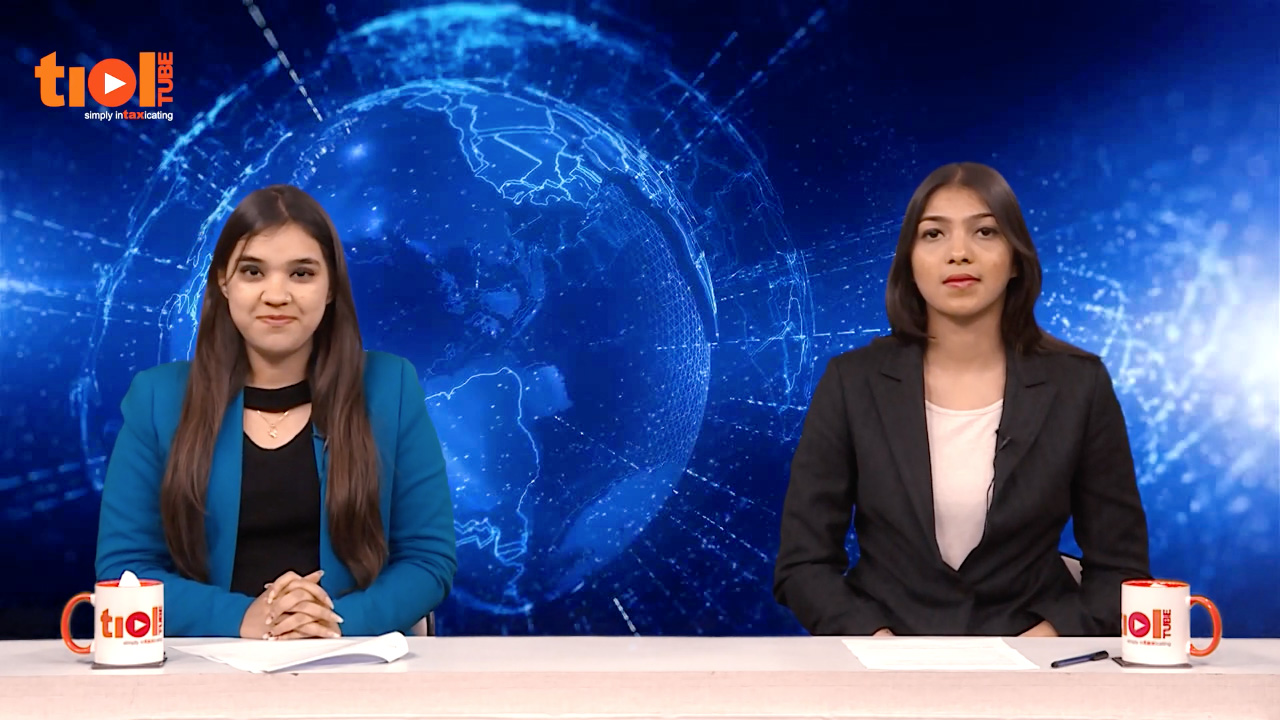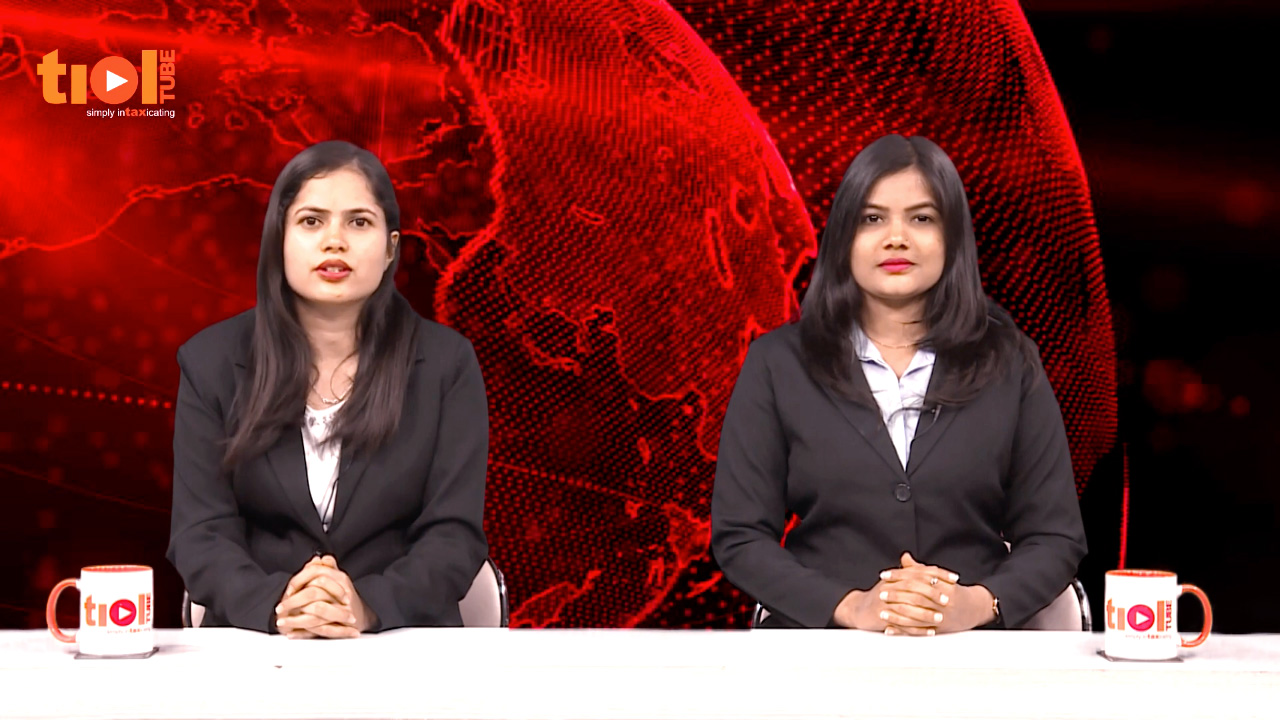|
SERVICE TAX 2020-TIOL-72-CESTAT-BANG
Fanuc India Pvt Ltd Vs CCE & ST
ST - Revenue alleged that the appellants had rendered services relating to sales promotion of the specified products produced by their parent company, Fanuc Ltd., Japan and the said services fall within the ambit of BAS; that the appellant had also rendered Maintenance or Repair Services in respect of products manufactured by Fanuc Ltd., Japan and imported by customers in India, during the warranty period - SCNs were issued and confirmed by the adjudicating authority with penalties and interest, therefore, appeals before CESTAT - in the matter of stay application, Tribunal had noted that in a similar dispute in the case of IBM India P. Ltd. - 2009-TIOL-2441-CESTAT-BANG it was held that such services of sales promotion are to be considered as export of services and, therefore, prima facie , demand was not sustainable to the said effect; however, in respect of maintenance or repair done in India, same cannot be considered as export and accordingly ordered pre-deposit of of Rs.42,49,818/-- appeal heard. Held: As per the Article of the Consignment Sales Agreement dated 17th August 1998 entered into by the appellants and Fanuc Ltd., Japan, the appellants are expected to visit customers, to explain to the customer about the product and to supply customers with documents; make advertisement on contract products in contract territory; inform customers of the condition of sales agreements and to inform Fanuc Ltd. of the progress of the contract negotiation; provide the employees of Fanuc India engaged in sales activities with necessary training; advise Fanuc of the market trends of Contract product and competitive products in the contract territory; to do other activities necessary for receiving orders from customers - beneficiary of the service is situated outside India and the services are rendered in India and the renumeration was paid in convertible foreign exchange - CBEC has vide Circular 56/5/2003-ST dated 25.04.2003 clarified that service tax is destination based consumption tax and is not applicable on export of services; export of services would continue to remain tax free even after withdrawal of 06/99-ST - services such as rendered by the appellants to their foreign principal fall under Export of Services Rules and are eligible for exemption in terms of notifications, Export of Services Rules and Circulars issued by CBEC from time to time for the entire period 01.07.2003 to 19.11.2003, 15.03.205 to 30.09.2007 and 01.10.2007 to 30.09.2008 - Issue is also no longer res integra in view of the Bench's decision in Mapal India P Ltd. - 2010-TIOL-1821-CESTAT-BANG and other cases cited by appellants - Appellants are not liable to pay Service Tax [demanded/confirmed of Rs.4,99,01,239/- and Rs.1,99,44,422/-] under the heading Business Auxiliary Service - consequently penalties u/ss 76, 77, 78 are also not sustainable: CESTAT [para 5, 5.1] ST - Insofar as demand of service tax under Maintenance or Repair Service for the period 01.10.2007 to 30.09.2008, appellants have fairly considered applicability of such tax and submitted that the duty demand was sustainable; that due to the continuous change in law and interpretation by the Courts, the appellants were under a bonafide belief that the tax is not payable; that the tax payable is available as CENVAT credit as it amounts to output service by them to the India customers; that under the circumstances, penalty is not maintainable.
Held: As the appellants have accepted the demand under Maintenance or Repair Service, Bench finds that no further discussion is required - demand of Rs.42,49,818/- is upheld along with interest, however, looking into the facts and circumstances of the case, penalty is set aside: CESTAT [para 3, 6] - Appeals partly allowed :
BANGALORE
CESTAT
2020-TIOL-67-CESTAT-MUM
Visible Alpha Solutions India Pvt Ltd Vs Commissioner of CGST
ST - Two Refund claims filed under rule 5 of the Cenvat Credit Rules, 2004 read with notification no.27/2002 rejected - major portion of the refund claims was rejected due to the fact that the appellants have not obtained registration - appeal to CESTAT.
Held: Contentions raised in the impugned OIOs are no longer Res Integra - the issue of eligibility of cenvat refund has been decided in favour of the appellant by this Tribunal, this bench and other benches -the Karnataka High Court has decided the issue in favour of the appellant - no contra judgement of any other High Court has been placed before the Bench - therefore, the issue is settled in favour of the appellants - regarding the other issues like general insurance etc., the refund of credit which was sought to be denied to the appellant, it is found that the case is squarely covered by the ratio of the cases mentioned by the appellant - moreover, the services are very much required for continuation of the appellants as a BPO and nothing has been brought on record to say that this have been availed for any other purposes than their business activities - under the circumstances, the said services are also eligible for Cenvat credit and consequently for the refund of the same -in view of the above, both the appeals are allowed by setting aside the impugned OIA : CESTAT [para8, 9]
- Appeal allowed : MUMBAI CESTAT
CENTRAL EXCISE
2020-TIOL-69-CESTAT-AHM
Rivaa Exports Ltd Vs CCE & ST
CX - This appeal was filed by Sh. Mathew C. Abraham, who is a Accounts Manager of M/s. Rivaa Exports Ltd. - A penalty of Rs. 10 Lakhs was imposed on assessee under Rule 26 (1) of CER, 2002 - M/s. Rivaa Exports Ltd. supplied polyester PET films to M/s. MGM Metalizers Ltd. for metalizing on job work basis under the cover of Job work challan - On investigation, it was found that M/s. MGM Metalizers Ltd. carrying out the metalizing process which amounts to manufacture and no excise duty was being paid by M/s. MGM Metalizers - The Riva Exports Ltd. wherein the assessee is working as Accounts Manager has supplied the films for job work under the cover of job work challan - This is more than sufficient compliance for transaction of goods - Since Riva Exports Ltd. is not a manufacturer and not registered under Central Excise there is no charge by revenue that Rivaa Export Ltd. is required to be registered, the supply of goods for job work was admittedly made under challan is in order - As regard the charge that the Rivaa Export Ltd. has not followed the procedure of Notfn 214/86-CE, it is found that since M/s. Rivaa Export Ltd. is not registered and it is also a fact that they have not filed undertaking as required under said Notfn 214/86-CE, there is no obligation on M/s. Rivaa Export Ltd. to follow any procedure of notfn - In such case, the entire responsibility to discharge Excise Duty if any leviable, is on M/s. MGM Metalizers Ltd. as has been held by Larger Bench of this tribunal in the case of Thermax Babcock & Wilcox Ltd. 2017-TIOL-4390-CESTAT-MUM-LB - Therefore, if there was any non-payment of duty by MGM neither M/s. Rivaa Export Ltd. nor its employee can be made responsible - It is also observed that the issue that whether metalizing is amount to manufacture has been decided in favour of assessee in case of Metlex India Pvt. Ltd. 2004-TIOL-77-SC-CX by Supreme Court and no contrary judgment of Supreme Court is available - Therefore, following the said judgment, M/s. MGM Metalizers have paid the Service Tax which Prima Facie appears to be correct - This also show a bona fide on the part of M/s. MGM Metalizers Ltd. therefore, the charge of abatement for evasion of duty by MGM has no basis against the present assessee - It is also observed that once M/s. MGM Metalizers Ltd. has discharged Service Tax there is no intention of evasion of duty - Even the department was aware of the fact that MGM Metalizers are paying Service Tax on their activity which claimed by department as manufacture - For this reason also, no mala fide is proved against anyone - Penalty was wrongly imposed against the assessee, therefore same is set aside: CESTAT
- Appeal allowed : AHMEDABAD CESTAT
2020-TIOL-68-CESTAT-MUM
IVP Ltd Vs CCE
CX - The genesis of dispute is initiating of proceedings to alter the classification of impugned goods, manufactured and sold under the tradename of 'Ivarez Parting W' by assessee from heading no. 2931 to heading no. 3910 of First Schedule to CETA, 1985 - During the period from 1st October 1986 to 9th March 1989, the goods were assessed to duty at 15% in accordance with the rate appendant to classification approved by competent authority under the then prevailing rule 173B of CER, 1944 - Based on samples drawn and tested by chemical laboratory, authorities concluded that the alternative classification rendered them liable to standard rate of duty at 60% with two effective rates - at 40% under notfn 132/86-CE and notfn 53/88-CE or at 35% respectively of two notifications subject to manufacture of 'silicones in primary form' from 'chlorosilanes' on which duties of excise or additional duty of customs had been discharged, and, by letter dated 6th March 1989, for the first time directed that differential duty be discharged by applying the lower of two effective rates - It is seen that the original classification adopted, and approved, was the residual entry within 'organo-inorganic compounds' under the broader heading of 'Organo-inorganic compounds, heterocyclic compounds, nucleic acids and their salts, and sulphonamides' that was preceded by specific subheading for 'organo-sulphur compounds' while the subsequent approvals classified the impugned goods as 'silicones in primary forms' - It is also seen that the original authority had failed to consider the option of extending the effective rate of duty, that was not bound by any condition, and there has been no evaluation of the contention of assessee that the intermediate 'silicone emulsifier' from which the impugned goods had been manufactured was obtained from 'chlorosilanes' - Furthermore, the adjudicating authority failed to take note of the approval accorded to the respective classification lists - The first appellate authority has distinguished the manufacture of 'chlorosilanes' by Rochow process and the direct production of 'silicone' by reduction of 'silica' and 'coke' in an electric arc furnace - It would also appear that the denial of alternative effective rate was attributed to failure in claiming such in the classification lists - From the cursory manner in which criticality of classification lists and their approval as a pre-requisite for clearance of manufactured goods, has been ignored by lower authorities, it would appear that the inordinate lapse of time between the commencement of proceedings and the disposal thereafter, during which the assessment procedure had been drastically transformed, bears every hallmark of lack of comprehensiveness of the impact that the conclusion of the procedure prescribed in rule 173B of CER, 1944 had upon the scope for invoking the extended period of limitation under section 11A of CEA, 1944 - The approval of declaration in classification list was to be a deliberated consequence of due ascertainment and in the context of specific description of manufactured goods, the responsibility thereof cannot be wished away by alleging mis-declaration on the part of assessee - There is no evidence that the information provided therein was insufficient for such ascertainment - The decisions of Supreme Court leave no room for doubt that with the approval of classification list, extended period cannot be invoked - Accordingly, the impugned order is set aside: CESTAT
- Appeal allowed : MUMBAI CESTAT
CUSTOMS
2020-TIOL-13-SC-NDPS-LB
Surinder Kumar Vs State of Punjab
NDPS - Criminal appeal is filed by the accused aggrieved by the judgment dated 22.04.2008 of the Punjab and Haryana High Court which dismissed the appeal filed by the appellant herein and confirmed the judgment and order of sentence dated 20.05.1999, passed by the Special Judge, Ferozepur - inasmuch as the appellant was convicted for the offence punishable under Section 18 of Narcotic Drugs and Psychotropic Substances Act, 1985 by the Special Judge, Ferozepur and was sentenced to undergo rigorous imprisonment for a period of 10 years and to pay a fine of Rs. 1,00,000/- and in default of payment of the same, to undergo rigorous imprisonment for another period of one year - appellant submits that S.K. Asthana, ASP who is claimed to have joined to the party by the police, was not even examined and in fact he was not there and opium was not recovered in his presence; that there is a violation of provision under Section 50 of NDPS Act, 1985.
Held:
+ In view of the reasoning assigned by the Trial Court, as well as the High Court, merely because S.K. Asthana, ASP was not examined, it cannot be said that prosecution has failed to prove its case - It is clear from the evidence on record that the appellant was summoned at the time of search and seizure and only in his presence, search was conducted, as such, there is no violation of Section 50 of the NDPS Act - Devi Lal, Head Constable (PW-1), during the course of cross-examination, has stated that efforts were made to join independent witnesses, but none were available, therefore, the mere fact that the case of the prosecution is based on the evidence of official witnesses, does not mean that same should not be believed - judgment in the case of Jarnail Singh v. State of Punjab supports the case of the prosecution - Court has in the said case held that merely because prosecution did not examine any independent witness, it would not necessarily lead to conclusion that accused was falsely implicated; that the evidence of official witnesses cannot be distrusted and disbelieved, merely on account of their official status - Bench is in agreement with the findings recorded by the Trial Court and High Court - From the evidence on record, the prosecution has proved the guilt of the appellant beyond reasonable doubt; the conviction recorded and the sentence imposed is in conformity with the provisions of law and evidence on record and, therefore, no interference is called for - appeal being devoid of merits is dismissed: Supreme Court Larger Bench [para 13, 14, 15, 17]
+ As the appellant-accused is on bail, the bail bonds are cancelled - Bench directs the appellant to surrender within a period of four weeks to serve remaining period of sentence, failing which, the Chief Judicial Magistrate, shall take necessary steps to take the appellant into custody to serve remaining period of sentence: SC Larger Bench [para 18]
- Appeal dismissed: SUPREME COURT OF INDIA
2020-TIOL-65-HC-MAD-CUS
Dalmia Cement Bharat Ltd Vs ACC
Cus - Petitioner seeks a mandamus directing the respondents to refund the amount deposited for the purposes of import through several bills of entry - despite the elapse of nearly 15 years from the dates of the Provisional assessments of the Bills of Entry, no final assessments have been completed till date in the matters - petitioner, for its part regularly sought the refund of EDD and Cess, however, due to the inordinate delay and inaction of the department, the present petition has been filed - no counter has been filed by the respondent in the matter, however, instructions as received from the department mentions that Directorate of Revenue Intelligence appears to have undertaken certain investigations into the import of Coal from Indonesia against 'some importers' and it is solely for this reason that the provisional assessments of the petitioner have been kept pending inordinately till date, despite furnishing of all necessary particulars by the petitioner; that there is no time limit for finalisation of the provisional assessments and hence there is no limitation that would apply.
Held: Argument of Revenue is unacceptable in the light of Circular No.11/2001 dated 23.02.2001 wherein it is instructed that where provisional assessment is being resorted to, the investigation and finalisation of the assessment must be completed within four months from the date of reply; that if no decision is taken within four months, the extra duty deposit should be discontinued and the Deputy Commissioner/Assistant Commissioner concerned will be held responsible for inexplicable delay in finalisation - Moreover the Board, on 16.07.2007 has also specifically referred to the pendency of provisional assessments on demands on leviability of Cess /EDD on import of Coking Coal stating that in the case of M/s. Tata Iron & Steel Co. Ltd. Vs. Commissioner of C. Ex. & Cus., Bhubaneswar = 2003-TIOL-94-SC-CUS, Supreme Court has held that, since coal is neither produced nor manufactured, the additional duty of customs is also not leviable on imported coal under Section 3 of the Customs Tariff Act read with section 6 of the Coal Mines (Conservation & Development) Act 1974 (CCDA); that since the issue regarding leviability of cess/additional duty of customs on imported coal stands settled, all concerned are required to finalise the provisional assessments accordingly - It is thus clear that this very issue has been settled by the Board even as early as in 2007, in favour of the assessee and, therefore, there is thus no justification for the respondents in the present case to have tarried so long and to delay finalisation of assessments as well as consequential refunds to the petitioner - Refund is required to be paid to the petitioner within a period of four weeks along with interest in terms of Section 27(a) of the Customs Act - Writ petition is allowed: High Court [para 9 to 12]
- Petition allowed: MADRAS HIGH COURT
2020-TIOL-66-CESTAT-BANG
CC Vs Flower World
Cus - Main plea of the Department is that penalty under s.114A should be imposed on the person liable to pay duty i.e., in the instant case the proprietrix of the Company and not on the authorised signatory and that penalty under Section 112(a) should be imposed on the authorised signatory.
Held:
+ A reading of the provisions of Section 114A makes it very clear that the penalty under this Section is payable by the person by whom duty or interest thereupon is payable - In this case duty is payable by the respondents i.e., M/s. Flower World - It being a proprietary concern the duty is payable by Smt. V.M. Hareefa - Therefore, Bench finds that the impugned order is not maintainable to that extent - Revenue appeal merits consideration: CESTAT [para 7]
+ Coming to the plea that penalty should have been imposed on J.Shamsudeen under 112(a) of Customs Act, 1962, Bench finds from the records of the case that J. Shamsudeen has been the authorised signatory of the respondents; has filed various documents and liasoned with the customs authorities in the imports undertaken by the respondents; was in the knowledge of the fact that for each of their imports they carried two sets of invoices (i) one showing a lesser value for the purpose of customs and the other showing higher value for the purpose of actual payment; has colluded with the respondents in the undervaluation of the goods and consequent evasion of duty; has rendered the goods imported liable for confiscation under Section 112 of Customs Act, 1962 and, therefore, J Shamsudeen has made himself liable to pay penalty under Section 112(a) of the Customs Act, 1962: CESTAT [para 8]
Conclusion [para 9]:-
(i) Penalty of Rs.54,76,724/- along with applicable interest imposed on Shri J. Shamsudeen, Authorised Signatory, of the respondents, under Section 114A of the Customs Act, 1962 is set aside.
(ii) Penalty imposed of Rs.54,76,724/- along with applicable interest, on Smt. V. M. Hareefa, Proprietrix of the respondents, under Section 114A of the Customs Act, 1962.
(iii) Penalty imposed of Rs.5,00,000/- on J. Shamsudeen, authorised signatory, of the respondents, under Section 112(a) of the Customs Act, 1962.
- Appeal allowed : BANGALORE CESTAT | |








